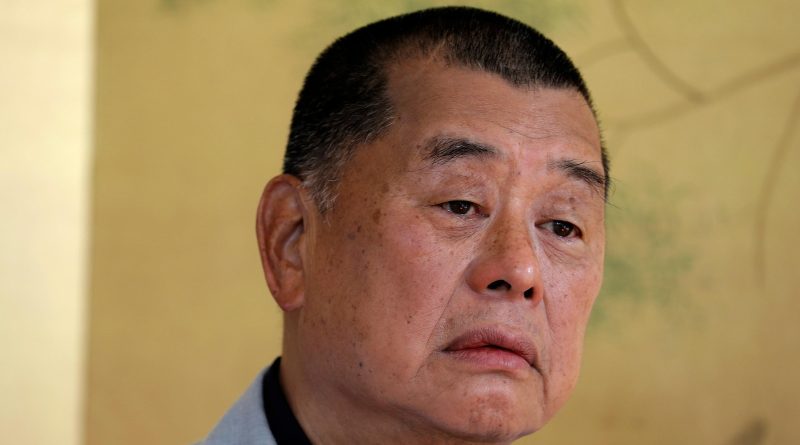Top Hong Kong court affirms convictions of seven leading pro-democracy activists for 2019 protest
HONG KONG — The highest court in Hong Kong on Monday confirmed the convictions of seven of the city’s most prominent advocates for democracy over their involvement in one of the largest protests against the government in 2019.
Jimmy Lai, creator of the now-closed Apple Daily newspaper; Martin Lee, the founding leader of the city’s Democratic Party; and five former pro-democracy legislators were found culpable in 2021 for orchestrating and participating in an unauthorized gathering.
Their convictions were a setback to the dwindling pro-democracy movement in the city during a crackdown on political dissenters after the protests.
The activists had some success in their appeal at a lower court last year, with their convictions overturned for organizing an unauthorized assembly. However, their convictions for participating in the assembly were upheld, leading them to continue their legal fight at the top court in the city.
On Monday, the judges at the Court of Final Appeal unanimously rejected their appeal on the remaining convictions.
The defendants had previously claimed that the trial judge did not carry out a proper “operational proportionality” evaluation when convicting them and referenced two unofficial rulings from the Supreme Court of the United Kingdom. The defense also proposed that the judge should have considered the fact that the demonstration did not turn violent.
But Chief Justice Andrew Cheung and Justice Roberto Ribeiro stated in their written decision that the two British cases should not be applied in the city’s courts due to differences in the frameworks for human rights challenges in the two regions.
They concluded that the defendants’ argument was “unsustainable” and “goes against all established principles governing constitutional challenges in Hong Kong.”
“Conducting a separate proportionality inquiry with regards to arrest, prosecution, conviction, and sentencing is inappropriate and unnecessary,” they wrote.
Following the court’s decision, barrister Margaret Ng, one of the defendants, chose not to comment until she had read the judgment.
“At this moment, we simply want to express our gratitude to our legal teams and all those who have supported us throughout,” she stated.
The convictions were related to their participation in a demonstration in August 2019 that attracted around 1.7 million people to the streets of Hong Kong, demanding greater accountability from the police and democracy. The protest was relatively peaceful compared to other demonstrations that turned violent clashes between law enforcement and protesters that year.
Hong Kong, previously a British territory, reverted to Chinese control in 1997. Its basic law, the mini-constitution, ensures the right to assembly for its residents.
When sentencing the seven activists in 2021, the judge at the District Court ruled that the freedom to assemble is not absolute and can be subject to legally sanctioned restrictions. Lai, Lee Cheuk-yan, Leung Kwok-hung, and Cyd Ho were ordered to serve jail time ranging from eight to 18 months. Martin Lee, Ng, and Albert Ho received suspended prison terms.
When their convictions were partially overturned in 2023 by the appellate court, some of the sentences for the four individuals serving jail time were nullified. This decision was made after they had already completed their sentences.
Lai, Lee Cheuk-yan, Leung, and Albert Ho remained in custody as they were also charged or convicted under a national security law imposed by Beijing, which critics argue has practically eliminated public opposition. Lai was also serving time in prison for a separate fraud case.
Both the Beijing and Hong Kong administrations argued that the security law was necessary to restore stability to the city after the protests.
The movement five years ago posed the most significant challenge to the Hong Kong government since the handover in 1997. It subsided due to widespread arrests and exile of democracy advocates, the impact of the COVID-19 pandemic, and the enforcement of the security law.

